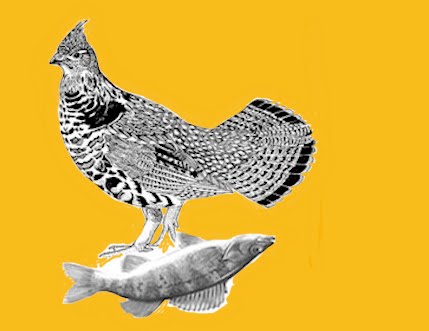 It is a production which, I am sure, would more than compensate for the nauseating experience of visiting that narcissistic traffic-swollen metropolis.
It is a production which, I am sure, would more than compensate for the nauseating experience of visiting that narcissistic traffic-swollen metropolis. It took me only a few seconds to know exactly which "Canadian" I would see immortalized in opera and my choice quite soon altered my mood from contestive exuberance to quieter reverence, sadness, even remorse. I had known about the murdered Native activist Anna Mae Pictou Maloney Aquash for many years, following the travesty of pseudo-attempts to solve the mystery of who killed her and why in South Dakota in late 1975. From the time that her partially decomposed body was found two months later, fingers have pointed in all directions with some trying to exonerate them,selves by saying Anna Mae was a traitor to the American Indian Movement (AIM), an informer. This made zero sense in terms of this woman's lifelong passionate commitment to her people and their full recovery from the battering of colonialism.

I dug out Johanna Brand's biography of Anna Mae and re-read several chapters to re-acquaint myself with this noble, short, and tragic life. I'd commend reading it as well as the several commentaries that can be found online by her daughter, Denise Pictou Maloney (here, here). I should also mention a book that I have ordered and looked at with online previews that honours Anna Mae - Who Would Unbraid Her Hair?
Somewhat ploddingly I prepared a brief rationale for operatically telling Anna Mae's story and submitted it and then heard Bill Richardson elaborate on the instructions to contestants, suggesting that innovative ways of nominating would be especially welcome. Thus did I set out to write the following poem and, as I did, white guilt, or some kind of remorse washed over me: the act of making poetry moved me more deeply than I had ever felt -- but should have -- about Anna Mae. It brought back vague recollections from the 1970s when news of her death made it onto the back pages of Canadian newspapers. The item then seemed so minor, so predictable: another dead activist, just one more murdered Indian. Yes, part of what Stannard aptly called the American Holocaust. Here's what I submitted:
POEM TO PROPOSE THE OPERA, THE ASCENSION OF ANNA MAE
“Died of exposure” said the Coroner.
But the wind, furious, accepts no blame.
so all that winter day
drove clumps of buffalo grass
shrieking “murder!” across the plains
They cannot just hide your story, Anna Mae: it must be sung.
Little Shubenacadie Indian girl who went to Pictou
School - they feared all five feet of you
and fearless facing down white bullies
becomes your recurring libretto.
From sweat-shop blueberry fields of Maine,
picked over by your people for chickenfeed,
up to Boston’s Combat Zone where,
they arrest your friend,
for the crime of being stabbed,
and you, petite avenging angel,
swoop from the cop car-top
and knock ‘em all, ass over kettle
They cannot just tell your story, Anna Mae: it must be sung.
And later you’re a mother, seamstress, teacher,
helper to needle-armed, paper-bag-hiding Indians
strung out along Beantown’s filth-encrusted alleys
Then, leading the charge
against vacant Thanksgiving amnesiac ceremonies,
you board the Mayflower II
and down to DC too, you march the Trail of Broken Treaties
right into the Indian Bureau.
Then westward, ho!
They cannot just cheer your story, Anna Mae: it must be sung.
You steal into Wounded Knee, seen only by the murdered ghosts
from 80 years before;
You marry Aquash there, but soon,
within the bloodied barricade of AIM,
fingers point, rats inform
Who ? Who ? Who?
Does the owl call your name too,
Anna Mae ?
Or is it some lower predator, already in flight?
They cannot just mourn your story, Anna Mae: it must be sung.
February ’76: human remains found on a South Dakota back-road
And the coroner still goes on about “exposure”
no heed to that laughing hole in the skull
you could not take with you
on your final ascension.
The decades and blame will pass;
The FBI exonerates itself and moves on,
pausing indifferently to jail old suspect friends.
Doubt still falls like a February badlands snow
on everything - but your soul’s beauty.
They cannot just praise your story, Anna Mae: it must be sung.

